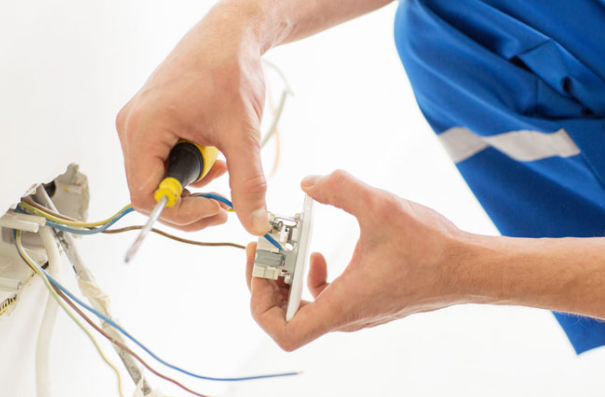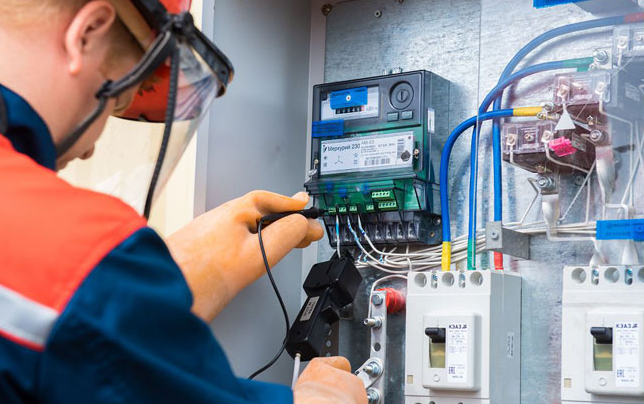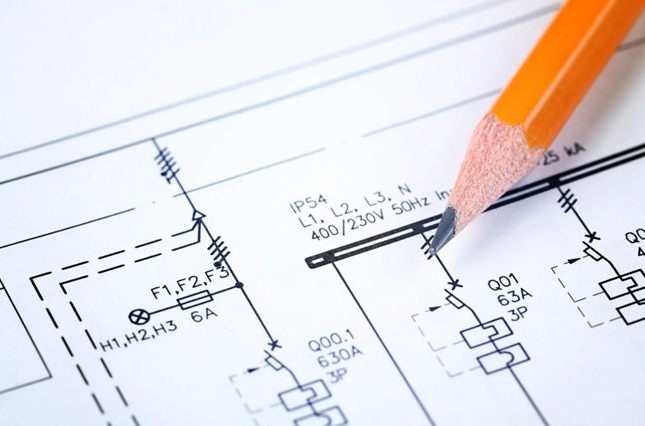Electrician provides power to the facility, correctly organizes the connection of lines with equipment, lays cables, punches holes in the walls for wiring, installs electrical panels, connects lighting devices, air conditioning, and other engineering systems to the power supply. These employees are responsible for the prompt restoration of power supply at the facility or in any part of it. During operation, they are exposed to an increased risk of electric shock, for example, if the insulation of the supply cables is damaged.
The main duty of an electrical fitter is to ensure the operability of electrical machines and mechanisms at his enterprise. Such an employee must clearly know not only safety rules, electro physics, be able to read drawings, but also understand the internal structure of various units and carry out maintenance and repairs, including in case of mechanical damage: deformations of metal parts, ruptures of chain and belt drives, etc.
In practice, there is often a confusion of duties and positions of specialists, a trained electrician can perform the functions of an electrical fitter, an electrician to maintain power equipment, etc.
An electrician

The main task of an electrician is to maintain the operability and normal functioning of electrical systems for household and industrial purposes. Persons who have received education in this specialty are required in housing maintenance services, repair shops, factories, and plants.
It is they who are engaged in solving such problems as replacing sockets, installing switches, energy consumption meters, ceiling, and wall lamps. In addition, the acquired knowledge and experience in the repair of electronic devices enable them to identify and replace damaged components in electric ovens, televisions, turntables, audio speakers, and other equipment. Employers often add responsibilities for wiring, setting up, and maintaining power equipment.
Job responsibilities
Typical instructions for most businesses require an electrician to:
- Conduct routine checks of equipment, maintain the entrusted equipment in a fit for operation.
- Adjust electrical appliances, switch functional modes.
- Ensure timely repair of networks and equipment.
- Observe all labor protection requirements when working with electricity.
- Use personal protective equipment to wear a business uniform.
- Store the working tool in proper condition, promptly report its loss or breakdown.
- Regularly, at least once every 2 years, undergo a professional medical examination.
- Engage in the installation and dismantling of power and signal cables.
- Conduct briefings on the safe handling of electrical networks and industrial equipment.
- Provide first aid to victims of electric shock.
- Electrician qualification requirements
- An electrician refers to the line personnel of a company and usually works under the direction of a chief engineer or other responsible people. The job mainly involves working with your hands, albeit in conditions of constant health risks. The passage of current through the body can cause burns, damage to the nervous system, or even death.
However, an electrician works in most cases according to already developed instructions and projects and therefore does not require the same deep knowledge from him as from an electrical engineer. The voltage that employee encounters do not exceed 1000 V, so for work it is enough to get 3 groups of electrical safety clearance. Higher or secondary technical education is not a prerequisite for a vacancy; to start a career at an earlier age, you can graduate from vocational schools or courses.

Electricians performing the tasks of electricians have higher requirements. They must have experience in managing power supply systems, have a good knowledge of electro physics, understand the principles of current action and understand the structure of power electrical equipment.
Electrical Engineer
The qualification of an engineer is obtained by electricians who graduated from technical universities. Specialists are trained in the following areas:
- electrical equipment and electrical technologies in the agro-industrial complex;
- electrical equipment of cars and tractors;
- management of energy resources of enterprises;
- electrical equipment of aircraft;
- production of power equipment;
- power supply and cable networks;
- electric power systems and networks;
- relay protection and automation of electric power systems;
- power supply.
Vacancies for electrical engineers are opening in construction, transportation, medicine, agriculture, medicine, the IT sector, and the defense industry. The work of these specialists can involve both the design and maintenance of electrical networks inside buildings and the development of electrical equipment, the creation of reliable and efficient electrical boards.
Job responsibilities
The specific responsibilities of an electrical engineer vary greatly from organization to area. In general, it looks like this:
- Understand the regulatory documents and be able to quickly find the information you need.
- Accept and participate in the implementation of design solutions.
- Make calculations of capacity and energy consumption at the facility.
- Draw up applications for the purchase of equipment and components for it.
- Organize acceptance, assembly, and testing of machine tools, pumps, motors, and other devices.
- Monitor the safety of electrical installations.
- Draw-up acts for the cancellation of equipment that has exhausted its resource.
- Monitor the energy consumption at the enterprise. Suggest optimization measures.
- Observe electrical safety techniques. To instruct employees on the correct and safe use of electrical installations.
- Identify the causes of breakdowns and failures at the enterprise. Offer management measures to eliminate them.
Electrical Engineer Knowledge and Skills

An electrical engineer organizes the work of line personnel and provides document flow. To make rational decisions, he must have an understanding of physical processes, be well versed in electrical equipment, be able to read and draw up single-line and other electrical circuits of various levels of complexity.
The main toolkit of this specialist includes a computer with access to information and reference databases, as well as programs for compiling technical and commercial documentation: Electrician, Splan, AutoCAD, MSOffice, and others. Newbies with no experience are usually expected to have knowledge of the device of household electrical networks and relay automation, a basic understanding of electronics.
Among the personal qualities inherent in an electrical engineer, one can single out responsibility, attentiveness, good memory, and develop logical thinking. Having a personal car and willingness to travel will also be a plus when hiring for this position.
Another article on this blog that might interests you:
